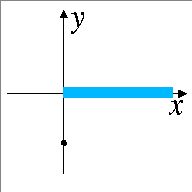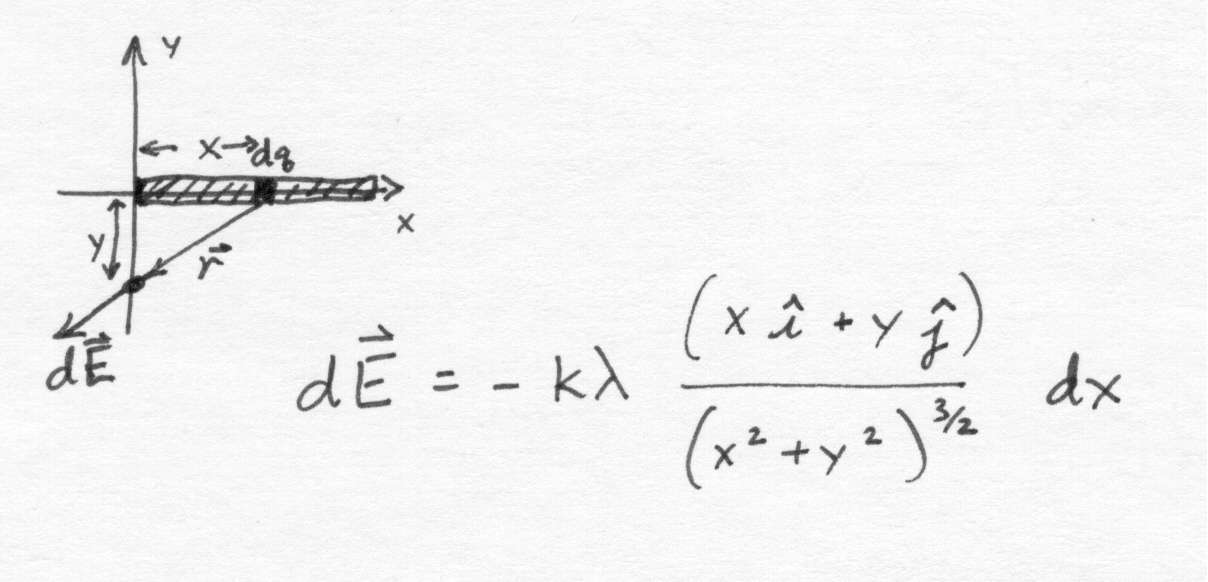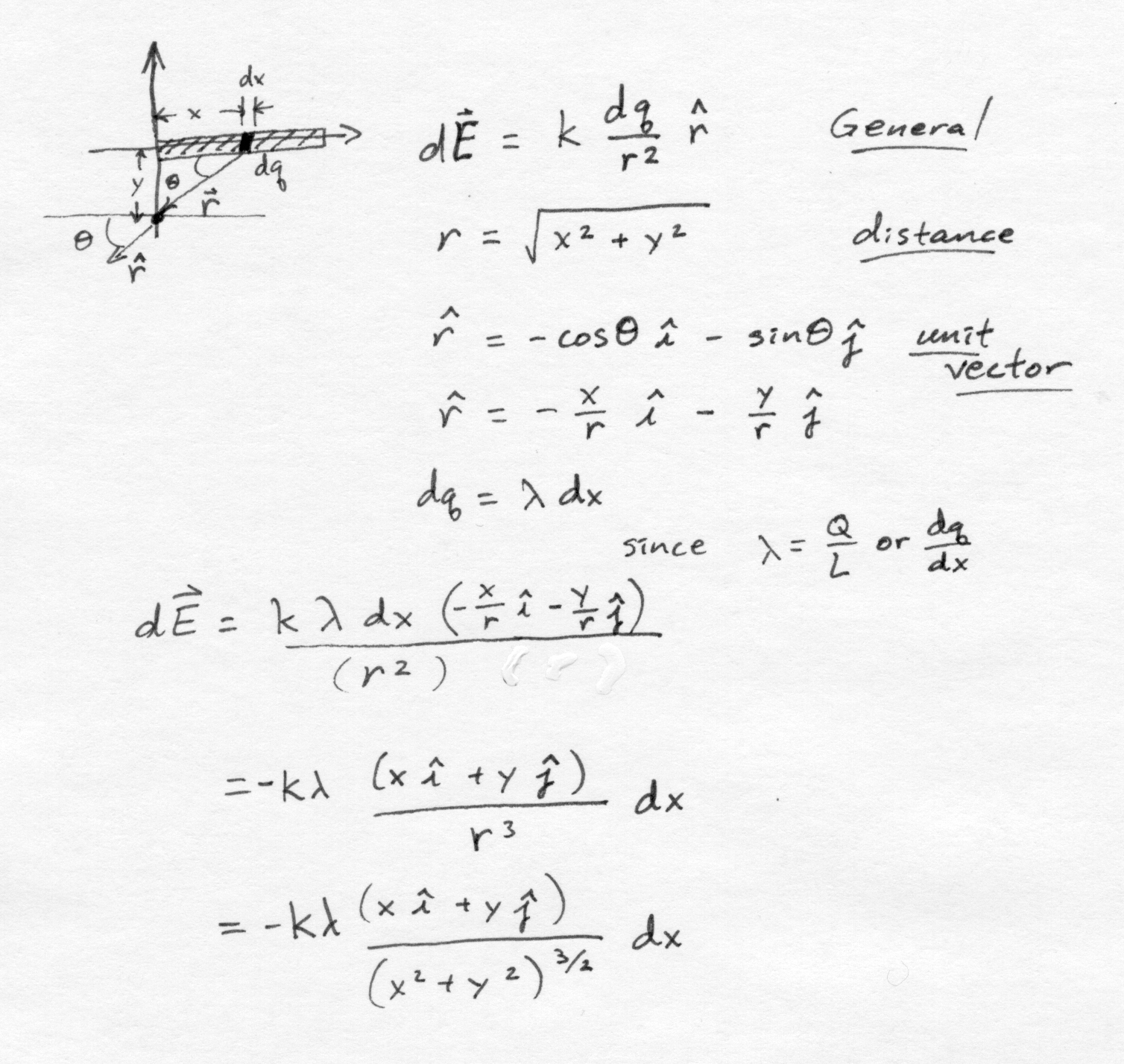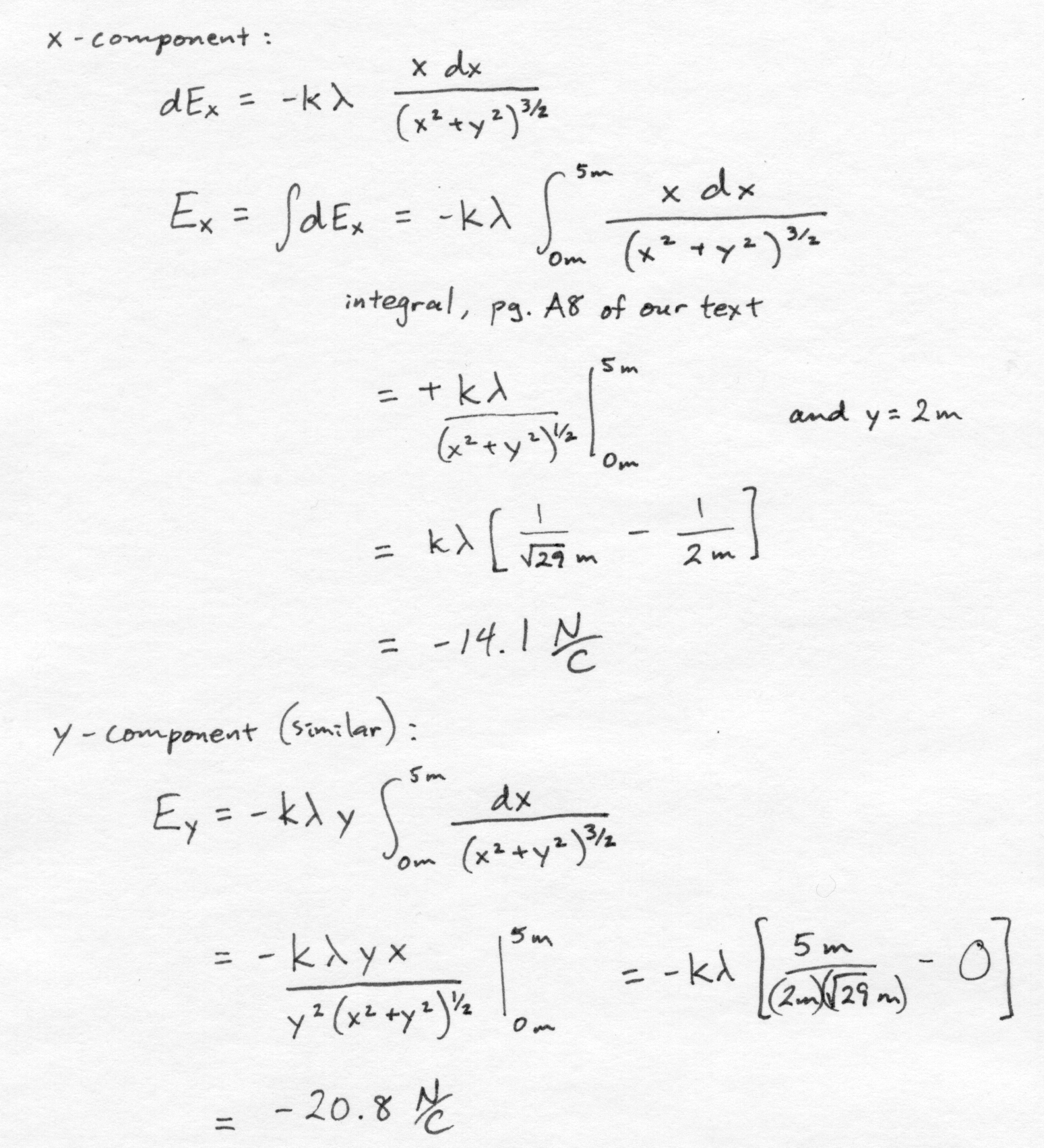Physics 224 - Electricity and Magnetism - Study Guide v 2.0
Written and developed by Dan
Ludwigsen for Kettering
University
- Applied
Physics.
These questions and solutions are not guaranteed to be accurate,
but are only intended to be helpful.
You are welcome to send comments and questions to dludwigs@kettering.edu.
The last update of this material was on or about April 1st, 2002.
Electric Forces and Fields
1.2 A thin rod of positive charge lies along the x
axis
from the origin to x = 5 m. It has a uniform charge
density
of 5 nC/m. Find the electric field (in component form) at the
point
(0, -2) m.

Did you get:
E = -14.1 N/C i - 20.9 N/C j ???
A very small (infinitesimal) section of the distributed charge can
be treated as a point charge -- for which we have an explicit form.
Choose an arbitrary dq (at some position x and width
dx)
on the diagram, and give the vector components of the force dE
on
q
due to dq.
My solution:

Let's break it down:
-
Write the general form for dE (based on the electric field for
a
point charge).
-
Write the distance (r) from the source dq to the field point in
terms of x and y (recall that here y = -2 m).
-
Find the unit vector which gives the direction of E at the
field
point (towards or away from dq).
-
Express dq in terms of dx and the linear charge density
(lambda).
Fill these elements into the general form for dE.
My solution:

Now integrate dE - both components - over the span of charge
(x goes from 0 to 5 m) to find the total field at the field
point.
My solution:

I think I rounded wrong -- it ought to be -20.9 N/C.
If this is perfectly clear, try the
suggested homework problems.
If not, check with a study partner. You will need to review
the electric field from a point charge.
Of course, if you spot an error in this, let
me know -- there may be extra quiz credit in it for you!



